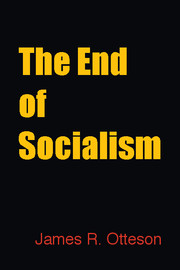Book contents
- Frontmatter
- Dedication
- Contents
- Preface
- Acknowledgments
- 1 What Socialism and Capitalism Are
- Part I Socialism’s Problems in Practice
- 2 Knowledge and Planning
- 3 Knowledge: Value, Equality, and Experts
- 4 Knowledge and Community
- 5 The Day Two Problem
- Part II Socialism’s Problems in Principle
- Conclusion
- Bibliography
- Index
3 - Knowledge: Value, Equality, and Experts
Published online by Cambridge University Press: 05 October 2014
- Frontmatter
- Dedication
- Contents
- Preface
- Acknowledgments
- 1 What Socialism and Capitalism Are
- Part I Socialism’s Problems in Practice
- 2 Knowledge and Planning
- 3 Knowledge: Value, Equality, and Experts
- 4 Knowledge and Community
- 5 The Day Two Problem
- Part II Socialism’s Problems in Principle
- Conclusion
- Bibliography
- Index
Summary
Introduction
An attempt to plan people’s economic activities centrally can utilize only a fraction of the knowledge that individuals themselves possess, from which it follows that centralized attempts will be less likely to succeed than allowing decentralized decision making. The error we often make is overestimating what we do or can know. This error manifests itself in numerous ways. How often, for example, do we assume that our own schedule of value is not only correct for us but should be adopted by others as well? That others should value, and sacrifice scarce resources for, what we value and to the same extent that we value it? That they should be willing to make the same tradeoffs, tolerate only the same risks, and associate with only the same people as we would, and under only those arrangements that we ourselves would accept? Much political philosophy includes criticism of others’ judgments and values for their failure to comport with the critics’ judgments and values. If the Local Knowledge Argument, as well as the Great Mind Fallacy, holds, however, then such criticism rests on a weaker foundation than is often supposed.
Individual Value
Robert Skidelsky and Edward Skidelsky idealize a society characterized by the “sculptor engrossed in cutting marble, the teacher intent on imparting a difficult idea, the musician struggling with a score, a scientist exploring the mysteries of space and time” (2012: 9). Karl Marx, for his part, imagines a society in which
Nobody has an exclusive area of activity and each can train himself in any branch he wishes, society regulates the production, making it possible for me to do one thing today and another tomorrow, to hunt in the morning, fish in the afternoon, breed cattle in the evening, criticize after dinner, just as I like, without ever becoming a hunter, a fisherman, a herdsman, or a critic.
(1994: 119)- Type
- Chapter
- Information
- The End of Socialism , pp. 44 - 71Publisher: Cambridge University PressPrint publication year: 2014



